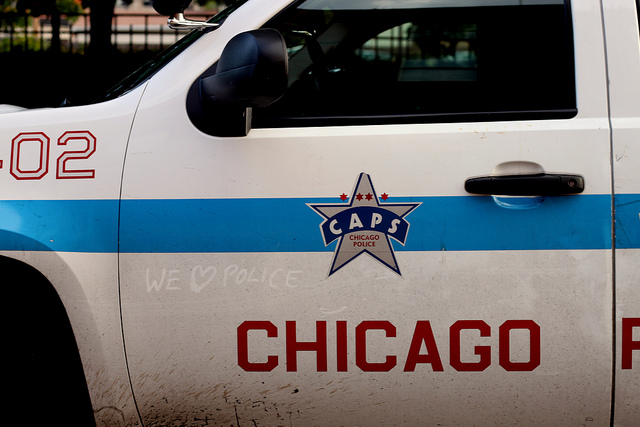CPD Faces Lawsuit Over Stop And Frisk
By aaroncynic in News on Apr 22, 2015 7:30PM
Six African American men from the South and West sides have filed a lawsuit against the Chicago Police Department over its “stop and frisk” procedures. The lawsuit, filed on behalf of the men by the law firm Romanucci & Blandi against the City, Police Superintendent Garry McCarthy and 14 unnamed officers, alleges CPD’s practices have violated their Fourth and Fourteenth Amendment rights and calls for a class-wide judgement declaring it unconstitutional. The firm is also calling for others who believe their rights have been violated to come forward.
The suit details several instances where the plaintiffs were stopped, questioned, searched and sometimes handcuffed without probable cause. Darnell Smith and Darren Nathan, two men from Englewood, allege that officers pulled up to a porch where they were visiting neighbors at 11:00 a.m. in May of 2013, demanded to know if they were armed, frisked them and then drove away without filling out a contact card. On a separate occasion, Smith alleges two officers stopped and frisked him while he was waiting for a delivery driver for his grandmother. Another plaintiff, Phillip Overton, says officers stopped, handcuffed, searched and ran a background check on him while he was walking to a neighborhood convenience store.
The suit comes after a March ACLU report revealed that Chicago Police lead the nation in stop and frisk procedures, four times that of New York City, which recently saw rulings to curb the practice. More than 70 percent of stops targeted African Americans and the majority of them happen in neighborhoods of color.
“We in Chicago have been victims of a serious problem of racial profiling and being mistreated,” said Rev. Paul Jakes, pastor of the New Tabernacle of Faith M.B. Church at a press conference. Jakes told WGN he’s also sent a letter to U.S. Attorney General Eric Holder to investigate the Chicago Police. "We are hopeful that the complaint we've filed on behalf of racial minority residents of Chicago will resonate with the City of Chicago's and the CPD's leadership,” said Anthony Romanucci, a lead attorney at the firm. “We strongly encourage the CPD to seriously consider the recommendations of the Illinois ACLU to institute policy changes to discourage the unlawful use of stop and frisk against its citizens.”
The department has yet to comment on the suit, but Superintendent Garry McCarthy has defended the practice before. In a paper published in a report from the Urban Institute in 2012, McCarthy wrote that increasing justifications for the practice “has enhanced law enforcement executives’ concerns with implementing pedestrian stops in a manner that is consistent with principles of community policing and does not threaten community perceptions of police legitimacy.” He also says that officers should use stops as “an opportunity to promote positive relations with the community,” provided they’re conducted in accordance with “community policing principles” and officers are held accountable, along with urging proper record keeping. McCarthy has also said that the practice is done based on crime reporting data.
The ACLU report and Romanucci & Blandi’s lawsuit however, highlight CPD’s shoddy record keeping when it comes to stops, and the data is pretty clear as to exactly how disproportionately people of color are targeted for stops. Moreover, the report and lawsuit call into question not only the constitutionality of stop and frisk but also the effectiveness. Speaking at the press conference, Romanucci said that the stops, known as Terry stops, are being done inappropriately with what the Supreme Court allows:
“Police are catching bad guys by making indiscriminate racially motivated and targeted stops, searching for God only knows what. And that’s how the police think they can keep crime down. But instead, it creates an unholy butterfly effect. Once stop after another, continuously, creates such deep mistrust and hatred amongst the community towards the police, we see these uprisings as they take place.”
